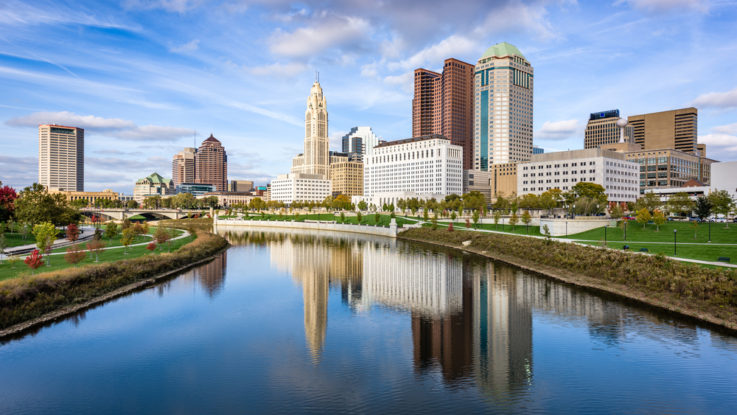
The City of Columbus, Ohio now has a solar-powered microgrid which will serve as a backup power source for a water facility. When the main power grid is down, the microgrid will enter “island mode,” using the onsite solar and battery energy storage system to operate one of the three booster pumps at the water station, ensuring that residents continue to receive safe and clean drinking water.
“This microgrid will support residents continuing to receive safe, clean drinking water during times of climate crisis and emergency situations,” said Kristen Atha, director of the Department of Public Utilities.
The microgrid is made up of a 100-kilowatt solar panel system and the battery energy storage system. The solar energy can be stored in the batteries or converted for use in island mode to power the pump station. The battery system has a power rating of 442 kW.
The microgrid is part of the Columbus Climate Action Plan which commits the city to achieve carbon neutrality by 2050 and acts as a roadmap to help stave off climate change impacts. Action 6.3 of the plan aims to evaluate microgrids and storage projects, with targets to complete a prioritization study by 2025 and implement five microgrid pilot projects by 2030. The microgrid project has been in development since 2019 and was supported through a funding initiative and partnership with investor-owned AEP Ohio.
“Climate change is already impacting quality of life in central Ohio, and the challenges stemming from its very existence will only continue to grow more frequent and more common in the years ahead,” said Mayor Andrew J. Ginther. “We have an obligation to strengthen the resiliency of our infrastructure and to meet these challenges head on. I am proud of the ways in which the City of Columbus is leading by example and embracing innovative solutions to ensure an equitable and prosperous future for every resident.”